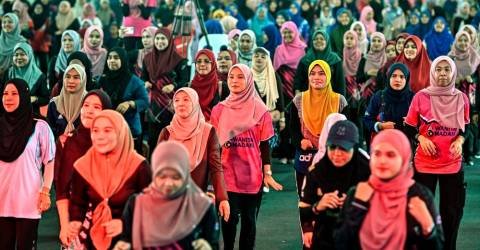Petaling Jaya: Men who tend to engage in more risky behaviors, such as smoking and excessive drinking, may live shorter lives than women, who are protected from a variety of diseases thanks to the hormone estrogen.
Professor Sharifah Ezzat Wan Puteh, a public health medicine expert at Universiti Kebangsaan Malaysia, said that although there were variations between countries, the pattern of women living longer than men was a global phenomenon, with a pattern of women living longer than men in Malaysia and the wider ASEAN region. He also said that the same applies.
This is evidenced by the Bureau of Statistics’ 2023 data, which reveals that the average lifespan of Malaysian men tends to be shorter at 72.5 years compared to women, who usually average 77.4 years.
“The trends over the past few years also show that the average life expectancy for men has shown some fluctuations. He returned to the age of 72.5.
“On the contrary, life expectancy for women has remained relatively stable, from 77.4 years in 2019 to 76.5 years in 2021, before rebounding to 77.4 years in 2023.”
Sharifa said this disparity raises concerns about its root causes and its implications for public health and health policy, adding that biological factors are a major driver of the disparity.
“Women naturally produce estrogen, which protects them from cardiovascular disease, which is the leading cause of death, especially in men.
“However, increased testosterone levels in men are associated with an increased risk of certain diseases such as prostate cancer and aggression, and can affect lifespan if they have been exposed to violence.”
Sharifah said World Bank data shows that men are almost twice as likely to “binge drink and eat” and more likely to smoke, which makes them more susceptible to diseases such as cancer and shortens their lifespans. said.
She also highlighted gender disparities in the use of health services, as women tend to use a wider range of health services, particularly those related to reproductive health.
“These include regular attendance at antenatal and postnatal care clinics.
“Such access to reproductive health services plays a role in contributing to extending their lives,” she said.
Sharifa stressed the importance of addressing non-communicable diseases and reducing negative lifestyle habits among men to address disparities in life expectancy.
“The importance of working with general practitioners to implement workplace health services and improving access to male-dominated healthcare is critical to reducing disparities.”
Mr. Sharifa suggested raising awareness among men and promoting proper self-care practices.
He said comprehensive public health interventions are urgently needed and require collaboration between policy makers, health care providers and communities.
“By addressing the issue, our country can achieve greater equality in life expectancy and work towards improving the health and well-being of our entire population.”

